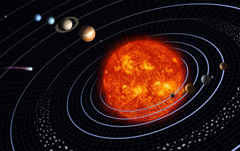 |
Solar System |
Taiyo-Kei |
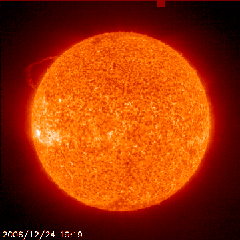 |
The Sun |
Taiyo
|
Taiyo ha Taiyo-kei no chu-shin ni ari masu. (The Sun is the star at the centre of the Solar System.) |
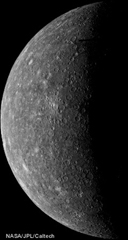 |
Mercury |
Sui-sei |
Sui-sei ha Taiyo ni ichiban chikai waku-sei desu. (Mercury is the most-closest planet to the Sun.) |
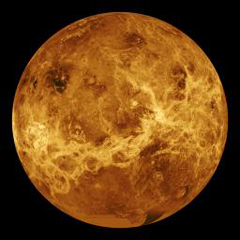 |
Venus |
Kin-sei |
Kin-sei ha Chi-kyu no futago-boshi to yobare masu. (Venus is sometimes called Earth's "sister planet". ) |
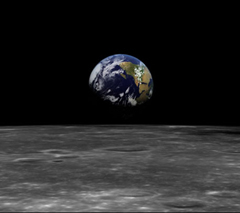 |
The Earth |
Chi-kyu |
Chi-kyu ha Mizu no waku-sei desu. (The Earth is called the "Blue Planet". ) |
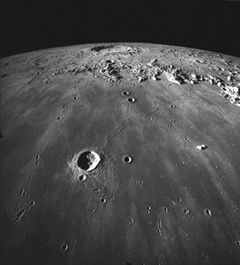 |
The Moon |
Tsuki |
Tsuki ha Chi-kyu no ei-sei desu. (The Moon is Earth's only natural satellite.) |
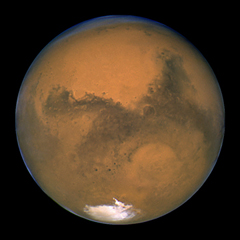 |
Mars |
Ka-sei |
Ka-sei ni ikimono ga iru ka douka ima demo wakarimasen. (So far whether living organisms ever existed in Mars is still an open question. ) |
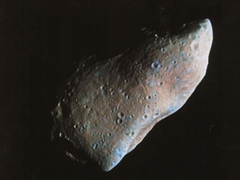 |
Asteroid, Minor Planet |
Sho-Waku-sei |
Sho-waku-sei ha tokidoki chi-kyu ni chikazuku mono ga masu. (Some asteroids are a catch-all group whose orbit closely approaches of Earth.) |
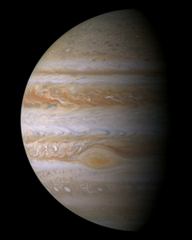 |
Jupiter |
Moku-sei |
Moku-sei ha ichiban o-kina waku-sei desu. (Jupiter is the largest planet within the Solar System.) |
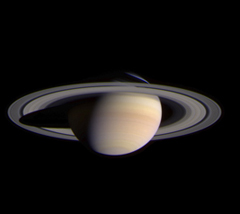 |
Saturn |
Do-sei |
Do-sei niha utsukushi-i wa ga arimasu. (Saturn has a prominent system of rings.) |
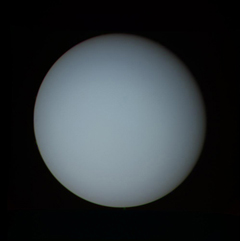 |
Uraus
|
Ten-nou-sei |
Ten-nou-sei ha Bou-en-kyo wo tsukatte hajimete mitsukatta waku-sei desu. (Uranus was the first planet discovered using a telescope.) |
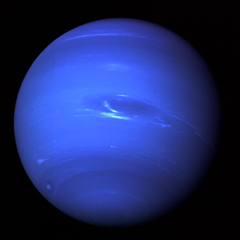 |
Nepturn |
Kai-ou-sei |
Kai-ou-sei ha kuroi o-kina me ga arimasu. (Nepturn has a Great Dark Spot.) |
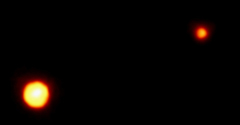 |
Pluto |
Mei-ou-sei |
Mei-ou-sei ha iwa to ko-ri no ten-tai desu. (Pluto is an object of which primarily composed of rock and ice.) |
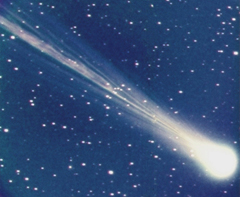 |
Comet |
Sui-sei, Houki-boshi |
Sui-sei ha Tai-yo no mawari wo mawatte iru o wo motsu sho-ten-tai desu. (A comet is a small body in the solar system that orbits the Sun and exhibits a tail.) |
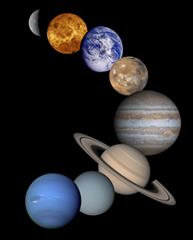 |
Planet |
Waku-sei |
Waku-sei ha Taiyo-kei no ichi-in desu. (Planet is one of the celestial objects that comprises the Solar System. ) |
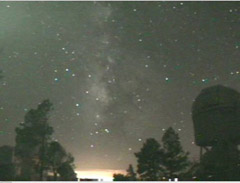 |
Milky Way |
Ama-no-gawa |
Ori-hime (Vega) to Hiko-boshi (Altair) ha nen ni ichido amano-gawa wo watarimasu. (Orihime (Vega) and Hikoboshi (Altair) can cross the Amano-gawa to meet only once a year.) |